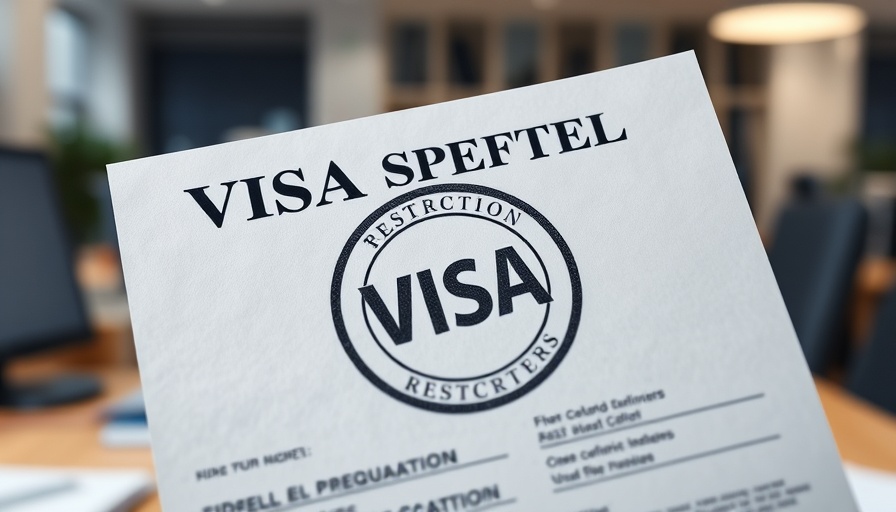
Trump's Potential Visa Changes Frighten International Students
In a landscape marked by political change, international students in the U.S. are feeling a wave of anxiety as discussions around new visa policies emerge. With the Trump administration's history of stringent immigration rules, these students are rushing to erase their op-eds and activities from public view, fearing repercussions that could jeopardize their status. Reports indicate that many students are particularly concerned about their potential immigration status being scrutinized, leading to self-censorship in a nation celebrated for its commitment to free expression.
The Cultural Impact of Self-Censorship
This trend is not just a reaction to the harsh realities of immigration policies; it signifies a shift in the cultural fabric of a diverse American student body. Students who once freely expressed their thoughts and opinions in university publications are now feeling pressured to silence themselves. Freedom of speech is not just a legal right; it embodies the spirit of academic discourse. Losing this could result in a less vibrant and innovative educational environment, which thrives on diverse perspectives.
What History Teaches Us About Change
The fear among students today can be compared to previous eras when political climates forced dissenting voices to quiet down. Historical cuts to immigration benefits often came in waves of political change. For example, during the 1920s, stringent immigration laws were enacted that limited the influx of foreigners into the U.S. fast forward to today, many concerning echoes can be traced back, as students navigate the need to voice their thoughts within an uncertain political landscape.
Future Implications for International Students
As international students navigate these turbulent waters, questions of future implications for their education, career, and personal lives loom large. Will they feel compelled to hold back their opinions to secure their visas? If such norms gain a foothold in society, future generations of international students may come to expect silence in discourse, undermining the true essence of what it means to be a global citizen within the U.S. educational landscape.
A Balancing Act: Rights and Responsibilities
This situation poses a significant dilemma for international students; they are aware of their rights to free speech yet feel the pressures stemming from current policy discussions. The looming fear of government backlash is palpable. Many are forced to weigh the benefits of free expression against the real risk of deportation or visa denial. This balancing act creates a shadow of fear, starkly contrasting with the openness American institutions once promised.
Counterarguments: The Other Side of the Debate
While the apprehension among international students is warranted, opponents argue that existing immigration laws are in place to uphold national security interests. Understanding both sides of the equation is essential, as arguing for policy changes can also trigger nationalistic sentiments. The ongoing dialogue surrounding immigration in the U.S. is multifaceted—encompassing concerns about safety, economic contributions, and cultural exchange.
Call for Action: Speaking Up
The recent actions taken by international students showcase their resilience and determination to stand up for their beliefs. It's crucial for institutions to foster a safe environment that not only encourages but also protects free expression. Engaging in discussions about policy changes and advocating for favorable reforms can empower students and help maintain the vibrant academic climate that has attracted talent globally.
As the United States grapples with these pressing immigration issues, it remains to be seen how policies will shift and how students will respond. But one thing is clear: the fear of losing one's voice is detrimental not just to the students but to the core values of education itself. To better support and understand these students, communities must come together to re-evaluate immigration policies ensuring they uphold the academic integrity and culture of free thought.
As we consider these pressing issues, we urge readers to engage in conversation about immigration and academic freedom. Together, we can uphold the ideals that make education a beacon of hope and opportunity.
 Add Row
Add Row  Add
Add 




 Add Row
Add Row  Add
Add 

Write A Comment